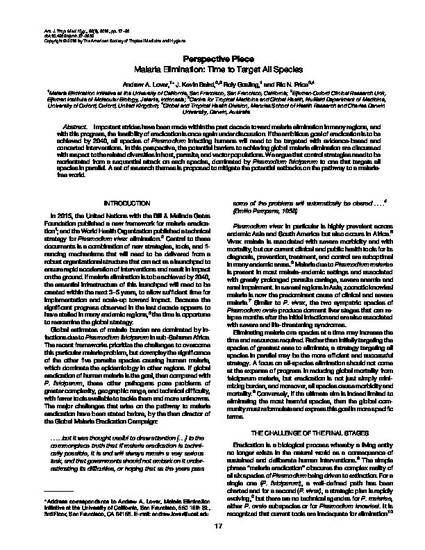
Article
Malaria Elimination: Time to Target All Species
The American Journal of Tropical Medicine and Hygiene
(2018)
Abstract
Important strides have been made within the past decade toward malaria elimination in many regions, and with this progress, the feasibility of eradication is once again under discussion. If the ambitious goal of eradication is to be achieved by 2040, all species of Plasmodium infecting humans will need to be targeted with evidence-based and concerted interventions. In this perspective, the potential barriers to achieving global malaria elimination are discussed with respect to the related diversities in host, parasite, and vector populations. We argue that control strategies need to be reorientated from a sequential attack on each species, dominated by Plasmodium falciparum to one that targets all species in parallel. A set of research themes is proposed to mitigate the potential setbacks on the pathway to a malariafree world.
Disciplines
Publication Date
2018
DOI
https://doi.org/10.4269/ajtmh.17-0869
Citation Information
Andrew A. Lover, J. Kevin Baird, Roly Gosling and Ric N. Price. "Malaria Elimination: Time to Target All Species" The American Journal of Tropical Medicine and Hygiene (2018) Available at: http://works.bepress.com/andrew-lover/14/
Creative Commons license

This work is licensed under a Creative Commons CC_BY International License.
